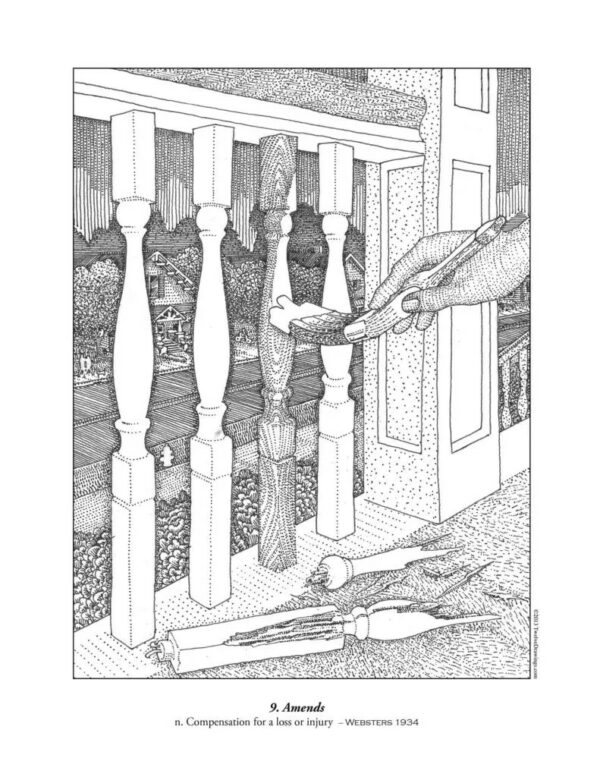My addiction caused me to lose my business, my reputation, and my home. While addiction devastated me, it was inevitable that my family would suffer. Toward the bitter end, everything had gone so far down that I doubted I could ever make things right again. I thought that the only remedy for my guilt would come through some sort of punishment and suffering. So, when I joined SA, I expected recovery to consist of punishment. I normally try to avoid pain at all costs, but if the program had to hurt me to heal me, I was prepared to endure it.
I remember the first time I read the Twelve Steps. I actually skimmed them, because I was jumping ahead to find the expected painful parts. My eye was drawn to Step Nine: “Made direct amends to such people wherever possible, except when to do so would injure them or others.” Surely, this was the punishment Step I had feared. I was convinced that “direct amends” described something painful and dangerous. My addiction had driven away loved ones and business associates who had once placed their full trust in me. The suggestion of going back and speaking to any of those people seemed unbearably painful. I was afraid of the Ninth Step. Back then, I was afraid of everything—including the very thing that would save me.
Fortunately, by the time I actually had to work the Ninth Step, I no longer believed the Twelve Steps contained any punishments or “bitter medicine.” Fear is a liar, and fear lied to me about how the Steps work. Fear alone had told me the Steps had to hurt to work. But that wasn’t true, which I had learned by working Steps One through Eight.
In Step Eight, I made a list of all people I had harmed, and discussed the list with my sponsor. Then I started Step Nine with his help. Using the literature, I pieced together my plan for how to make my amends. I had a huge lump in my throat the first time I made an amends. But I must have done something right, because I felt a genuine shift in my spirit as I began working Step Nine. I didn’t recognize it at first, but I was experiencing the Promises. I found this hard to believe because I felt I had done nothing to deserve this precious gift.
I wanted to create a drawing for “Amends,” but I didn’t know where to begin. My old Webster’s 1934 dictionary described “amends” as: “Compensation for a loss or injury.” In legal terms, a loss relates to money or property. An injury relates to health or reputation. But I wanted to draw something that was familiar to people. How could I show something like “compensating.” Putting a cast on someone’s broken leg? No, that’s a job for a doctor. Handing a person money because I dented his car? Not really, because auto insurance would take care of that. A picture of someone simply saying “I’m sorry”? No, something more than an apology must come from an amends.
But then I thought back to when I was a kid, when I accidentally broke a wooden railing. I felt terrible about it, but that didn’t fix the railing. My father got angry, but he never told me how I could fix it. That railing stayed broken for years, and I felt guilty about it every time I walked past it. Finally, just before we moved out of that house, my father repaired the railing. It took only part of a day, yet it relieved years of guilt for me. I now wish I had asked him how to fix it right away. That would have helped me make things right—and that memory was the inspiration for my drawing.
What I have learned to do in Step Nine is mend fences. When I cause damage, I ask those I have harmed, “How can I make amends to you?” I then follow their directions (so long as no one is injured by the directions). There is more to making an amends than that, but that is the key ingredient as I understand it.
The past is unchangeable. I cannot turn back time, but the past can still feel real to me. I can choose to obsess about a word or action I would change if I could only go back in time. But real change only happens in the present. Before I got into recovery, I wasted many years wanting to change a past that could never be changed, while ignoring present opportunities to compensate those I had harmed.
Today, when I spot a loss or injury that I caused in the past, I promptly offer to correct it in the present. Thanks to the Ninth Step, I have become very fond of the present. I see that every minute spent idly worrying about the past is one minute of the precious present I am losing out on. With the help of my Higher Power as found through working the Steps, I can fully live in the present, one day at a time.

John I.






